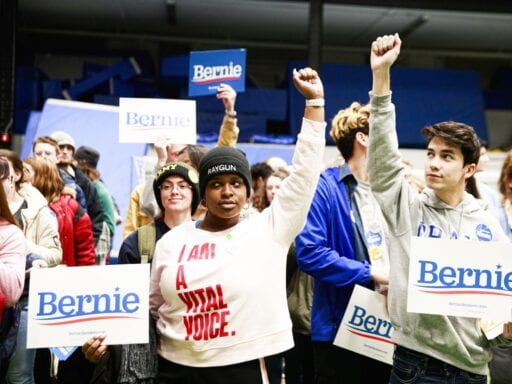One simple trick for getting a lot more people to vote.
If you’re looking for an argument against caucuses (beyond that whole Iowa debacle), look no further than the results of Super Tuesday’s primary elections.
Between 2016 and 2020, Maine, Minnesota, Colorado, and Utah all switched from caucuses, in which people meet and debate before publicly aligning themselves in groups with the candidate they support, to primary elections, in which people simply vote in private as they do in general elections.
In all four caucus-ditching states, turnout surged dramatically from 2016 to 2020:
- In Colorado, turnout more than sextupled from around 122,000 in 2016, with all votes counted, to more than 755,000 in 2020, with nearly 99 percent of precincts reporting.
- In Maine, turnout more than quadrupled from nearly 47,000, based on an estimate from Democratic officials, to more than 194,000, with 90 percent of precincts reporting.
- In Minnesota, turnout nearly quadrupled from more than 205,000, with all votes counted, to more than 745,000, with more than 99 percent of precincts reporting.
- In Utah, turnout more than doubled from more than 77,000, with all votes counted, to nearly 175,000, with 99 percent of precincts reporting.
One other way to look at it: In Colorado, former Vice President Joe Biden, who was second in the state, got more votes in 2020 than Sen. Bernie Sanders and Hillary Clinton combined in 2016. Sanders, who again won Colorado this year, nearly quadrupled his vote count from 2016 to 2020.
In some ways, this isn’t really surprising. Caucuses require people to show up in a public setting, stay there for potentially hours through lengthy discussions about the candidates and possibly multiple votes, and eventually group up in a lightly regulated system to select a nominee.
That’s simply much more work than just casting a ballot by mail or in person — and it’s particularly bad for people with disabilities, people who work night shifts, people who don’t have a lot of free time, people who don’t have consistent transportation, and just about anyone who for whatever reason can’t make it out to a school gym for possibly hours on a Tuesday night.
This isn’t to say that everything goes smoothly in regular primaries. On Super Tuesday, for instance, long lines at the polls were a big problem — particularly in communities of color.
But the numbers drive home just how bad caucuses are for democracy, given that they appear to suppress turnout so much. Especially among Democrats, who have opposed Republican efforts to suppress voters, it’s hard to square all the talk about boosting voter turnout and access to the polls with the continued use of caucuses in places like Iowa and Nevada.
If Democrats really want to make it easier to participate in democracy, the Super Tuesday figures suggest getting rid of caucuses is one concrete way to do that.
Author: German Lopez
Read More



